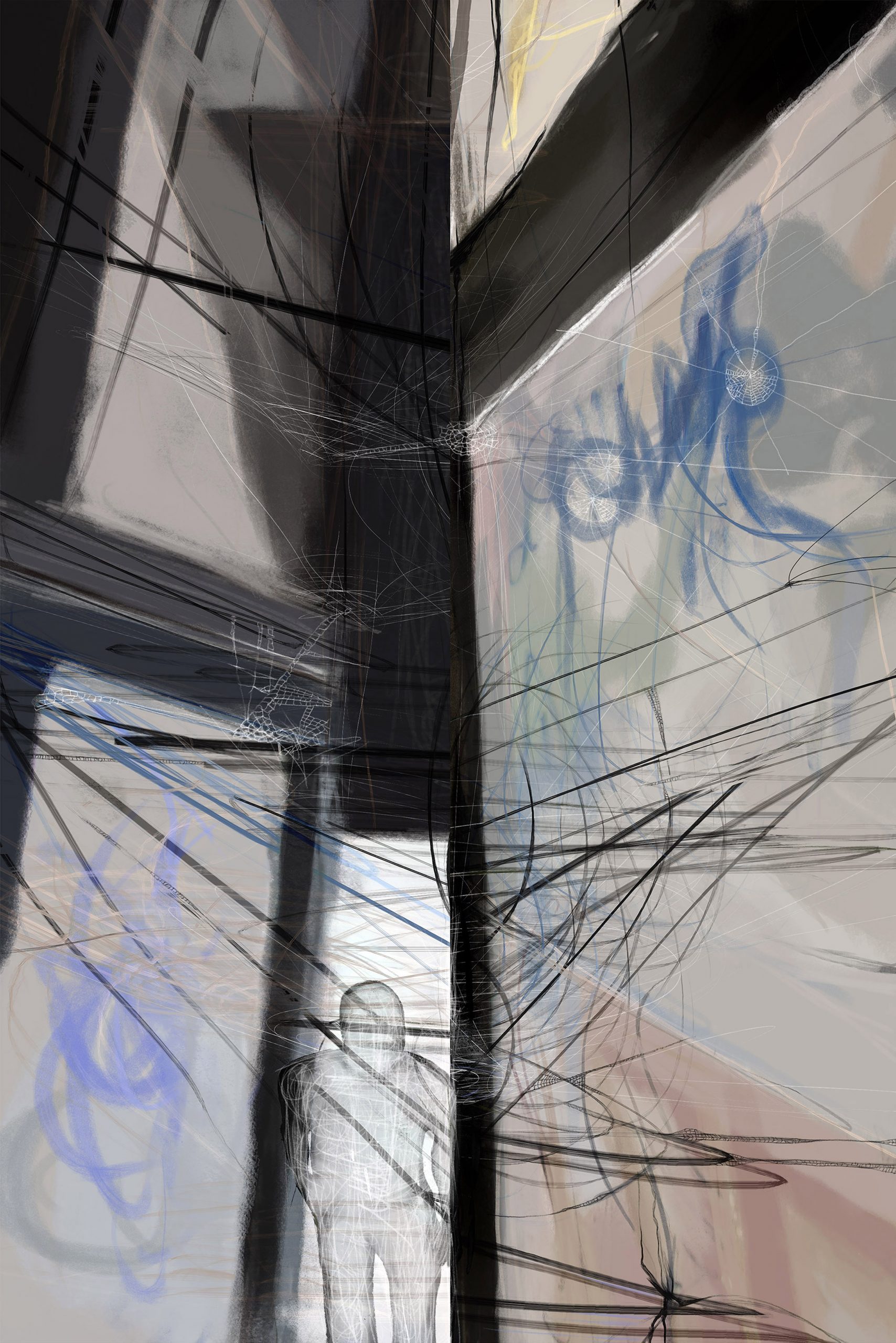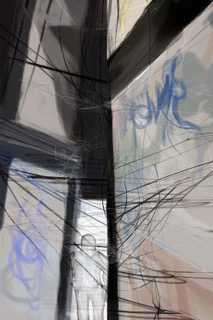In Praise of the Short Novel by Craig Smith
I recently had the pleasure of reviewing Voting Day by Clare O’Dea for MIR Online. The book arrived through the post from the publisher, Fairlight Books, in a pocket-sized jiffy bag containing an encouraging postcard from the PR department.
I love getting books through the post. Though I am an incorrigible habitué of bookshops wherever I go, I order plenty of books online, too. I prefer to give my business to small or independent bookshops whenever I can. Amazon is a guilty fall-back when I need to get hold of something in a hurry. Regardless, pouring books out onto my desk or sliding them out of the envelope is a treat. I joke that, since starting the MA in Creative Writing at Birkbeck, I spend more money on books than I do on food. It’s a fine use of my spending money, even if I don’t have time to read everything that I buy. Still, they’re all waiting for me when I get the space to give them my attention.
Voting Day is handsome. To take the book from the envelope is to immediately have a beautiful new object in the house. The design is modern but harks back to the look and feel of Pelican paperbacks and Penguin novels from the 30s/40s/50s. A good cover vouches for the book’s place on the bookshelf: the outside represents the work inside, and the reader is persuaded by the cover to commit to assigning the time to read the contents. I have many books where the cover and the contents are misaligned, where there seems to be no point of contact between the inside and the outside. In an ideal world, it shouldn’t matter; the text should speak for itself. But the most pleasing books are the ones where the cover, the content, and the typeface all say the same thing.
Voting Day is ostensibly a novella, coming in at around 160 pages in a format that fits neatly into my hand. However, the delineation between long novel, short novel, novella, and short story is a non-issue for me. I know it’s more practical to market a book within a category, so I totally understand why a publisher would provide a metric of the book’s extent: it manages the expectations of the reader with regards the price they should expect to pay and how long it will take to read. But I know of no one who recommends a book based on its length. There are long novels I love, short stories I love, and everything in between and beyond. But there are qualitative differences between a long form piece and a short form piece that go further than how much paper it takes to print them out.
Usually – and this is just a generalisation, not an irrefutable law – long novels are the bailiwick of the professional writer, the tenured lecturer at an American liberal arts university or the successful franchise writer with a major publisher. A long novel is the product of the luxury of an abundance of time and money. This is not a criticism, just an observation.
In the days of the escalating wars between the bookshop chains, when bewildering yardage of real estate in every town was given over to the printed word, there was a sense that the bigger publishers encouraged the writing of longer books because they sat thicker on the bookshelf in the bookshop. This was reflected in the books’ lay-out. The margins and headers grew wider and taller, the blank pages at the back more copious, the font a little larger. The purpose was to muscle out the work of their rival publishers, and to allow for a bigger typeface for the book’s title on the spine to call to the casual reader. This was a trait across all publishing: I worked in sales for a tech publisher, and the gaming of the physical presence of the product was openly discussed in business meetings. And even though many book sales have drifted online these days, the chunky book with the big bold title is still the one that your eye is drawn to. It’s often the one that has benefited from the most marketing spend. The longer the print run, the cheaper the unit cost, the more leeway there is to play with the book’s bulk in order to hold a bigger presence on the bookshelf.
I have been writing novels since 2001. I have many friends who are novelists, and I have come to the following conclusion: working people don’t have time to write long novels. They’re too busy putting food on the table or caring for their families to spend whole months fashioning a bewitching tapestry from interweaving plots or editing 200,000 words to a submittable standard. Working people write in the corners of their lives through sheer force of will. Their writing days are taken directly from their annual leave quotient and invariably come at a cost of not taking their children on day trips, not decorating the living room, not visiting distant relatives. They spend weekends in guilty joy, squeezing in moments here and there when they can put pen to paper. They scribble at the dining table while their kids are in bed and their partner is watching Game of Thrones, or in a café during their lunch hour, grabbing whatever opportunities they can to keep their narrative ticking over, eating with one hand, typing with the other.
And that’s the thing with short form writing. It is the product of not just the work required to write them but also the work that goes into finding the time to write them. And if we wish to champion the writing of ordinary people, if we believe that encouraging the creativity of working people can help us grow as a society, and I believe it can, then we have to embrace the short novel as a form. It enables the thoughts and sensibilities of sensitive, thoughtful people who write for the love of language and the love of self-expression, but who otherwise have to work for a living. Shorter formats are enabling because they fit into the gaps. And this fits with the ethos of George Birkbeck’s original Mechanics’ Institute, which was to promote the education of working people.
I love the challenge of shorter forms of writing. I come from a poetry background, and I find the same pleasure in grappling with the concentration of language within short stories and short novels that I enjoy when fine-tuning longer poems. Personally, I enjoy the richness of having many projects on the go – as Louis Macneice said, the drunkenness of things being various – and I wouldn’t wish to be snagged on one all-encompassing, multiyear project that left me no time to do anything else. The research required for the shorter form is more manageable, too, when time is of an essence; I’m not in a position to take on an assistant to do my research for me, as many higher profile authors do.
As a reader, I enjoy shorter fiction. It is generally written with a sense of purpose, of movement, and is shorn of padding. As I scan across my bookshelves at home, I look fondly at the short stories of Raymond Carver and William Saroyan, of Mother Night and Slapstick by Kurt Vonnegut, Hemingway’s The Old Man and the Sea, Kerouac’s Satori in Paris. The reading list on the Birkbeck Creative Writing MA has introduced me to the short stories of Ali Smith, Daphne de Maurier, Carmen Maria Machado, which has then taken me to their novels. Shorter fiction allows me to range wider and to experiment more in my reading, just as it allows the author to experiment more in the written form. (And I take a moment here to champion the short novel, Ella Minnow Pea, by Mark Dunne, which is an astonishing epistolary that gets to the heart of the value of language and the danger of dogma, and the insanity that ensues when the government of the day believes in its own infallibility). I think of John Fante’s Ask the Dust, of which I hated the first 150 pages; if that book had been 500 pages long, I would have stopped reading, and missed the fact that the final act was stupendously good.
Fairlight Books’ commitment to the shorter form is admirable. It’s healthy for literature and society. It opens up opportunity to a wider demographic of potential authors who may not previously have had chance to find a sympathetic publisher. And while I reserve the right to write long novels in the future if I so desire – just as I reserve the right to write poetry or plays or children’s books, or whatever I fancy taking a punt at – I will always return to the short story, the novella, the short novel, as a reader and as a writer. Storytelling should not be the sole domain of the sponsored and the funded. Literature should be open to everyone. Shorter forms of literature make that possible.










